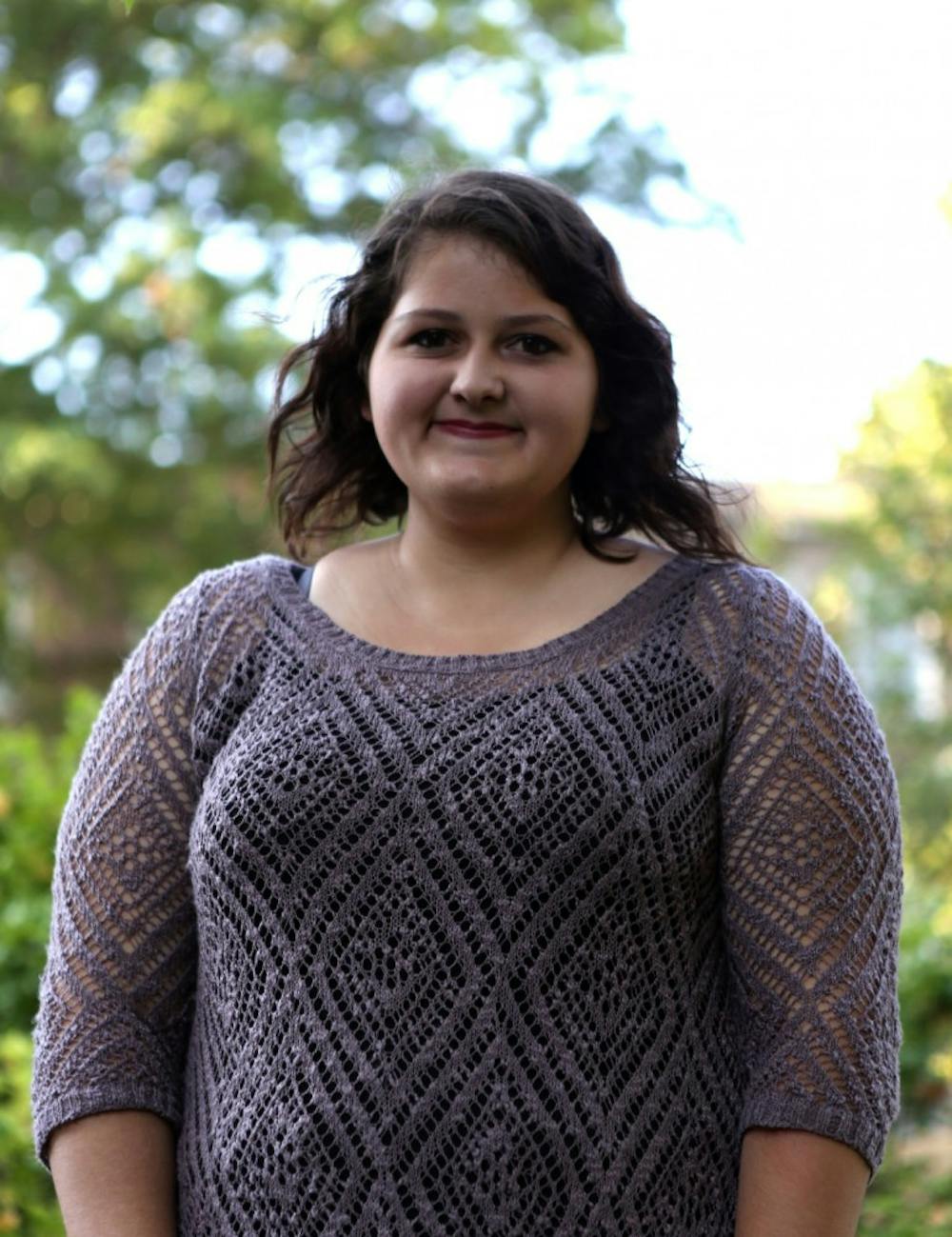Columnist Grace Eberly discusses the intersection between the reality television franchise and religious practices.
I am a woman with many interests. Chief among them are the comparative study of religion and absolutely anything having to do with Bravo’s Real Housewives franchise.
If you’re not familiar with the show, it is due time for you to emerge out from underneath your rock. Allow me to provide some context. Real Housewives is a reality television show that documents the life of affluent women residing in various cities throughout the U.S. Between seven cities and multiple seasons, there are quite literally hundreds of episodes, and I’ve seen darn near close to all of them. The show is not for the faint of heart: there is a nauseating amount of money, never-ending drama and a whole lot of wine throwing.
So, maybe it’s not the most intellectual show on television, but hey, we all have our vices.
What could religion and a “mindless” reality show possibly have to do with one another? I’m glad you asked.
The 10th season of The Real Housewives of Orange County just wrapped this week with the final installment of a three-episode reunion. A major storyline this season was Tamra Judge’s exploration of her newfound Christian identity. The occasion for the finale episode was her baptism. Tamra shares that she grew up without religion and suffered from low self-esteem and depression. Since finding God, she says, she’s become a kinder and more positive person.
Throughout the season, Tamra meets with her pastor (not “pasture” — sorry, Tamra) and learns that she doesn’t have to be a perfect person to accept Jesus as her savior. She can go to church on Sunday having just hosted a “sex party” the night before (it’s a long story). Tamra vies for an easier, “blonde version of the Bible” (do I smell a book deal?). Tamra finds sanctuary in her new religious practice after a bitter custody dispute with her ex. She felt lost. The Church gave her comfort. Religious or not, I think that’s a sentiment we can all relate to. She realizes that she can stay true to herself (or at least to the Tamra we have seen on screen) while seeking spiritual growth. In this way, Tamra’s religious journey has a ring of blunt authenticity. She’s here to say that she’s saved, and “if you don’t like it, you can suck it.”
Tamra hasn’t always handled religion quite so tactfully. She had an ongoing feud with Alexis Bellino, a Christian cast-mate whom Tamra famously called “Jesus Jugs” — an obvious reference to Bellino’s experimentation with breast enhancement surgery (Alexis prefers the name “Jesus Barbie”). During the reunion, host Andy Cohen read a letter from Alexis in which she accused Tamra of hypocrisy. She wrote, “I do love Jesus, which is why I cannot sit back and watch a mockery be made of my Savior … Someone’s faith is not for entertainment, it’s their sole reason for existence.”
The ladies have a lot of opinions about what makes one a good Christian. Real Housewives of Orange County co-star Vicki Gunvalson seems to think it has something to do with martyrdom (i.e. being accused of lying about your boyfriend having cancer): “I am being nailed to the cross like Jesus was, and he did nothing wrong … That’s how I feel.” Pan camera to Tamra’s pastor (pasture) who now looks palpably uncomfortable. Cringe.
This isn’t the first time Bravo has engaged religion. Carlton Gebbia, a former cast member of The Real Housewives of Beverly Hills, openly practiced witchcraft. Her religious practice was a major topic of conversation for the other wives. She was accused of casting dark spells and hexes. She got into an unresolved dispute with Jewish co-star Kyle Richards after Kyle mistook Carlton’s pentagram tattoo for the Star of David. Though Carlton ultimately became somewhat of a caricature, it was the first time I’ve seen a popular reality television series engage any kind of Pagan religious practice.
Real Housewives has dabbled in Eastern religion, too. On Season 6 of The Real Housewives of New Jersey, Dina Manzo — who practices Zen Buddhism — returned to the show after a brief hiatus. In her opening tagline, Manzo made her intentions clear: “I’m back to bring the Zen. Namaste, bitches.”
If you’re still reading, thanks for indulging my fandom. I can appreciate that Real Housewives isn’t everyone’s cup of tea. But I hope that I’ll be able to convince you that the show, as a medium of popular culture, is relevant to a serious understanding of religion in the 21st century.
{{tncms-asset app="editorial" id="698a7b8e-7e51-11e5-9524-bb6421513ea2"}}
Though we tend to think of our society as being entirely secularized, religion is a persistent theme in popular culture. Television often engages religion critically, from a comedic standpoint (think South Park or The Simpsons’ characterization of Ned Flanders — but the examples don’t stop there). On this season of The Mindy Project, Stephen Colbert guest stars as a bad-boy turned Catholic priest. On Sex and the City, Charlotte converts to Judaism for then-boyfriend Harry and laments when he won’t turn off the big game, “I gave up Christ for you and you can’t give up the Mets?”
These popular television shows provide an important social space — a social space in which complex questions (like that of religion) can be negotiated. And so, perhaps the Real Housewives franchise, my most beloved guilty pleasure, is more substantive than I originally presumed. A great many questions remain and must be teased out by sociologists and scholars of religion. Does television reflect society (religion) or inform it? When religion becomes intertwined with entertainment does it somehow change our understanding of both? Has the family couch become the new church pew?
Grace Eberly is a senior studying world religions and biology. What do you think of religion and reality television? Email her at ge713313@ohio.edu.






